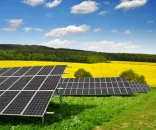Malaysia approves electricity tariff restructuring for Sabah, Labuan
The Malaysian government has approved the electricity tariff restructuring for Sabah and the Federal Territory of Labuan with effect from July 15.
The country's Minister of Energy, Green Technology and Water Datuk Seri Peter Chin Fah Kui said the tariff restructuring is necessary to reduce the widening gap between the cost of electricity supply and tariff.
This is also to enable Sabah Electricity Sdn. Bhd to provide a reliable and uninterrupted electricity supply in Sabah and Labuan.
He said the current electricity tariff in Sabah has been in existence for the past 25 years, while for Labuan, it is based on the TNB electricity tariff for the industrial and commercial sectors since 1994.
"With the restructuring, the average electricity tariff rate in Sabah and Labuan will be increased by 3.75 sen/kWh or 15 per cent of the restructured tariff from 25.50 sen/kWh to 29.25 sen/kWh," Chin stated. "This restructuring of the electricity tariff is necessary to reflect the actual cost of electricity supply and also to promote the efficient use of electricity in line with the current energy policy of the country," he added.
"The interest of consumers was taken into account before implementing the new tariff," Chin told reporters at Wisma SESB, here.
Chin said about 75 per cent of domestic consumers, comprising 275,276 consumers in Sabah and Labuan whose consumption is in the range of 1 to 350 kWh/month, would not experience any increase in monthly bills after the new tariff rate is enforced.
Chin said the peak or off-peak rates would be introduced for the first time in the state, and medium voltage commercial and industrial consumers can benefit by shifting their operations to off-peak periods, thus enabling them to enjoy savings in electricity bills.
He said there would also be a reduction of consumer connection charges of up to 50 per cent effective January, next year.
He added that the electricity tariff rate for public lighting rates in areas that were maintained by local authorities would be reduced by 47 per cent from 30 sen/kWh to 16 sen/kWh.
The full story is available at Bernama.













 Advertise
Advertise











